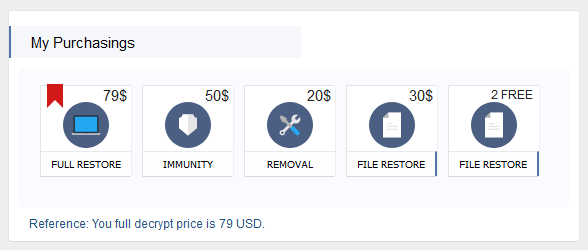- Feb 4, 2016
- 2,520
..some quotes from the article above...
A new ransomware family made its presence felt today, named Spora, the Russian word for "spore." This new ransomware's most notable features are its solid encryption routine, ability to work offline, and a very well put together ransom payment site, which is the most sophisticated we've seen from ransomware authors as of yet.
Unlike most of today's ransomware families, Spora works offline and does not generate any network traffic to online servers.
Spora has top notch encryption
According to Fabian Wosar, CTO and malware researcher for Emisoft, Spora does not appear to contain any weaknesses in its encryption routine. The entire encryption operation appears to be very complicated.
From the different security researchers we spoken to, the new Spora appears to be a professional ransomware put together by a crew with previous experience in ransomware distribution.
Last year, in the months of January and February, the world was introduced to ransomware families such as Locky and Cerber, which plagued users all over the world during 2016, and which security firms had failed to break their encryption.
Spora seems to be a ransomware family as advanced and well-run as Cerber and Locky, and we may soon see its operators expand from Russia to other countries across the world.
Spora targeting only Russian users for now
According to MalwareHunterTeam, a security researcher who helps run ID-Ransomware, a service for identifying the type of ransomware that has infected computers, all Spora uploads to ID-Ransomware today came from users in Russia.
Further, the ransom note dropped on our test machine was also available only in Russian. Emails we found and tied to Spora spam campaigns were also all available in Russian alone.
Spora distributed via spam campaigns
Currently, the Spora ransomware is distributed via spam emails that pretend to be invoices. These emails come with attachments in the form of ZIP files that contain HTA files.
.....
.....
.....
These HTA (HTML Application) files use a double extension, as PDF.HTA or DOC.HTA. On Windows computers where the file extension is hidden, users will see only the first extension and might be tricked into opening the file. Launching any of these files starts the Spora ransomware process.
.....
....
....
When a user runs the HTA file, it will extract a Javascript file named close.js to the %Temp% folder, which further extracts an executable to the same folder and executes it. This executable uses a randomly generated name. On our test run it was "81063163ded.exe." This executable is the main encryptor and will begin to encrypt the files on the computer.
Additionally, the HTA file will also extract and execute a DOCX file. This file is corrupted and will show an error. Other malware families use this very same trick, opening corrupted files in order to trick users into thinking the file had been damaged during the email transfer or the download operation so as to not alert them of foul play.
